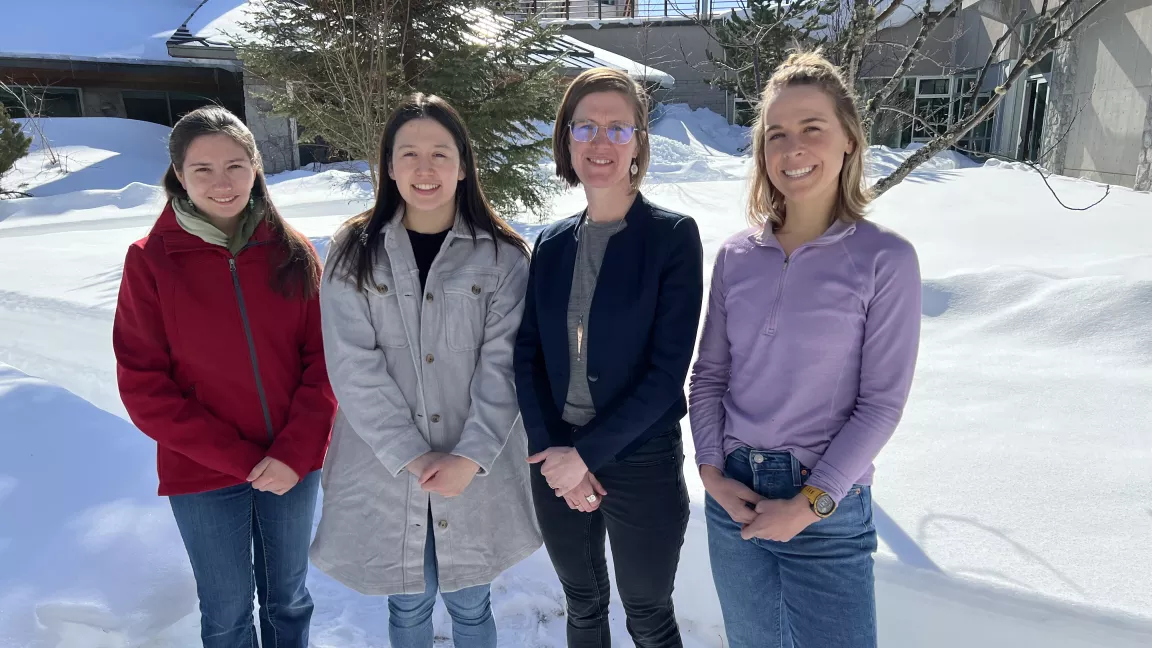Leading climate action in northern B.C.
The Northern BC Climate Action Network is holding its first in-person meeting at UNBC on April 4. The network, which launched in 2022, aims to identify and celebrate opportunities for climate action that work for northern B.C., encourage regional innovation and identify funding opportunities.

A growing network of people active in implementing local climate solutions across northern British Columbia is using its first anniversary to expand its reach and provide opportunities for collaboration.
The Northern BC Climate Action Network (NorthCAN) is hosting a full-day public workshop at UNBC and online Tuesday, April 4, co-sponsored by the Community Energy Association, the Pacific Institute for Climate Solutions and UNBC.
A hub for connecting individuals from local and Indigenous governments, the health and education sectors, business and industry as well as non-governmental organizations, NorthCAN aims to identify and celebrate opportunities for climate action that work for northern B.C., encourage regional innovation and identify funding opportunities.
“For about 25 years now, CEA has been working to accelerate actions by local governments regarding climate and energy and we’ve been facilitating a number of networks around B.C. that connect people working to implement local solutions. But nothing like NorthCAN has existed here before,” says Rob van Adrichem, CEA’s Director of External Relations and its first employee in northern B.C.
UNBC is playing a pivotal role in facilitating the gathering, according to UNBC School of Planning and Sustainability Assistant Professor Dr. Sinead Earley.
“It’s our responsibility as a public institution to engage in this significant challenge of addressing climate change in as timely a manner as we can,” Earley says. “We have the people and we have the resources. We need to put them in service to communities that are trying to transform and shape the adaptation and mitigation strategies key to the low-carbon transition.”
The workshop includes hands-on sessions to identify northern climate action priorities, and how NorthCAN might help to realize these, as well as guest speakers including Albert Edman from the Viable Cities and RISE Research Institutes of Sweden and University of Saskatchewan School of Environment and Sustainability Professor. Dr. Greg Poelzer.
Following the workshop, NorthCAN will produce a report highlighting key climate action priorities for BC’s northern region. Both the workshop and report are, in part, supported by the Pacific Institute for Climate Solutions (PICS).
“Northern climate perspectives and priorities are essential if we’re going to create effective and equitable climate solutions in B.C.,” says PICS executive director Ian Mauro. “PICS is delighted to contribute to NorthCAN’s collaborative work and finding meaningful ways to learn from and implement findings from workshop.”
Through a UNBC Connecting Communities Grant, Earley hired two undergraduate research assistants who have helped prepare for the workshop as well as laying the foundation for future research projects related to low-carbon solutions.
“I see the opportunities for research avenues really flourishing from here,” Earley says. “If NorthCAN can help to identify these local climate action priorities, then I and other UNBC faculty members can develop research programs that will match that and be in service to that.”
In addition to UNBC, NorthCAN has members from Coast Mountain College and participation from other northern colleges. Earley says the colleges provide an important perspective when it comes to the technical and trades aspects of low-carbon transition solutions.
Earley says the workshop is a great opportunity for current UNBC graduate students to share their knowledge and build connections with civil society organizations across the region. Many NorthCAN members are UNBC alumni, demonstrating the impact UNBC is having across the region.
“We are retaining these really creative minds in northern B.C. and they are coming up with climate change solutions,” Earley says.
If you plan to attend in-person, please register via Eventbrite. Deadline for in-person registration is March 20. If you plan to attend virtually, please register via Zoom.
Travel funding is available; please contact Carly Madge to apply.